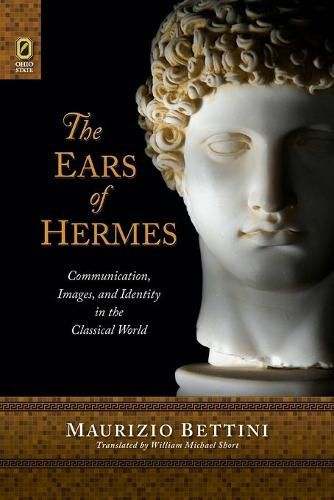Readings Newsletter
Become a Readings Member to make your shopping experience even easier.
Sign in or sign up for free!
You’re not far away from qualifying for FREE standard shipping within Australia
You’ve qualified for FREE standard shipping within Australia
The cart is loading…






This title is printed to order. This book may have been self-published. If so, we cannot guarantee the quality of the content. In the main most books will have gone through the editing process however some may not. We therefore suggest that you be aware of this before ordering this book. If in doubt check either the author or publisher’s details as we are unable to accept any returns unless they are faulty. Please contact us if you have any questions.
Though in many respects similar to us moderns, the Greeks and Romans often conceived things differently than we do. The cultural inheritance we have received from them can therefore open our eyes to many manners of life we might otherwise overlook. The ancients told fascinating–but different–stories; they elaborated profound–but different–symbols. Above all, they confronted many of the problems we still face today–memory and forgetfulness; identity and its strategies; absolutist moralism and behavioral relativity–only in profoundly different ways, since their own cultural forms and resources were different. In The Ears of Hermes: Communication, Images, and Identity in the Classical World, renowned scholar and author Maurizio Bettini explores these different cultural experiences, choosing paths through this territory that are diverse and sometimes unexpected: a little-known variant of a myth or legend, such as that of Brutus pretending, like Hamlet, to be a Fool; a proverb, like lupus in fabula (the wolf in the tale), that expresses the sense of foreboding aroused by the sudden arrival of someone who was just the subject of conversation; or great works, like Plautus’ Amphitruo and Vergil’s Aeneid, where we encounter the mysteries of the Doppelganger and of doubles fabricated to ease the pain of nostalgia. Or the etymology of a word–its own story –leads us down some unforeseen avenue of discovery. While scholarly in presentation, this book, in an elegant English translation by William Michael Short, will appeal not only to classicists but also students, as well as to anthropologists and historians of art and literature beyond classics.
$9.00 standard shipping within Australia
FREE standard shipping within Australia for orders over $100.00
Express & International shipping calculated at checkout
This title is printed to order. This book may have been self-published. If so, we cannot guarantee the quality of the content. In the main most books will have gone through the editing process however some may not. We therefore suggest that you be aware of this before ordering this book. If in doubt check either the author or publisher’s details as we are unable to accept any returns unless they are faulty. Please contact us if you have any questions.
Though in many respects similar to us moderns, the Greeks and Romans often conceived things differently than we do. The cultural inheritance we have received from them can therefore open our eyes to many manners of life we might otherwise overlook. The ancients told fascinating–but different–stories; they elaborated profound–but different–symbols. Above all, they confronted many of the problems we still face today–memory and forgetfulness; identity and its strategies; absolutist moralism and behavioral relativity–only in profoundly different ways, since their own cultural forms and resources were different. In The Ears of Hermes: Communication, Images, and Identity in the Classical World, renowned scholar and author Maurizio Bettini explores these different cultural experiences, choosing paths through this territory that are diverse and sometimes unexpected: a little-known variant of a myth or legend, such as that of Brutus pretending, like Hamlet, to be a Fool; a proverb, like lupus in fabula (the wolf in the tale), that expresses the sense of foreboding aroused by the sudden arrival of someone who was just the subject of conversation; or great works, like Plautus’ Amphitruo and Vergil’s Aeneid, where we encounter the mysteries of the Doppelganger and of doubles fabricated to ease the pain of nostalgia. Or the etymology of a word–its own story –leads us down some unforeseen avenue of discovery. While scholarly in presentation, this book, in an elegant English translation by William Michael Short, will appeal not only to classicists but also students, as well as to anthropologists and historians of art and literature beyond classics.